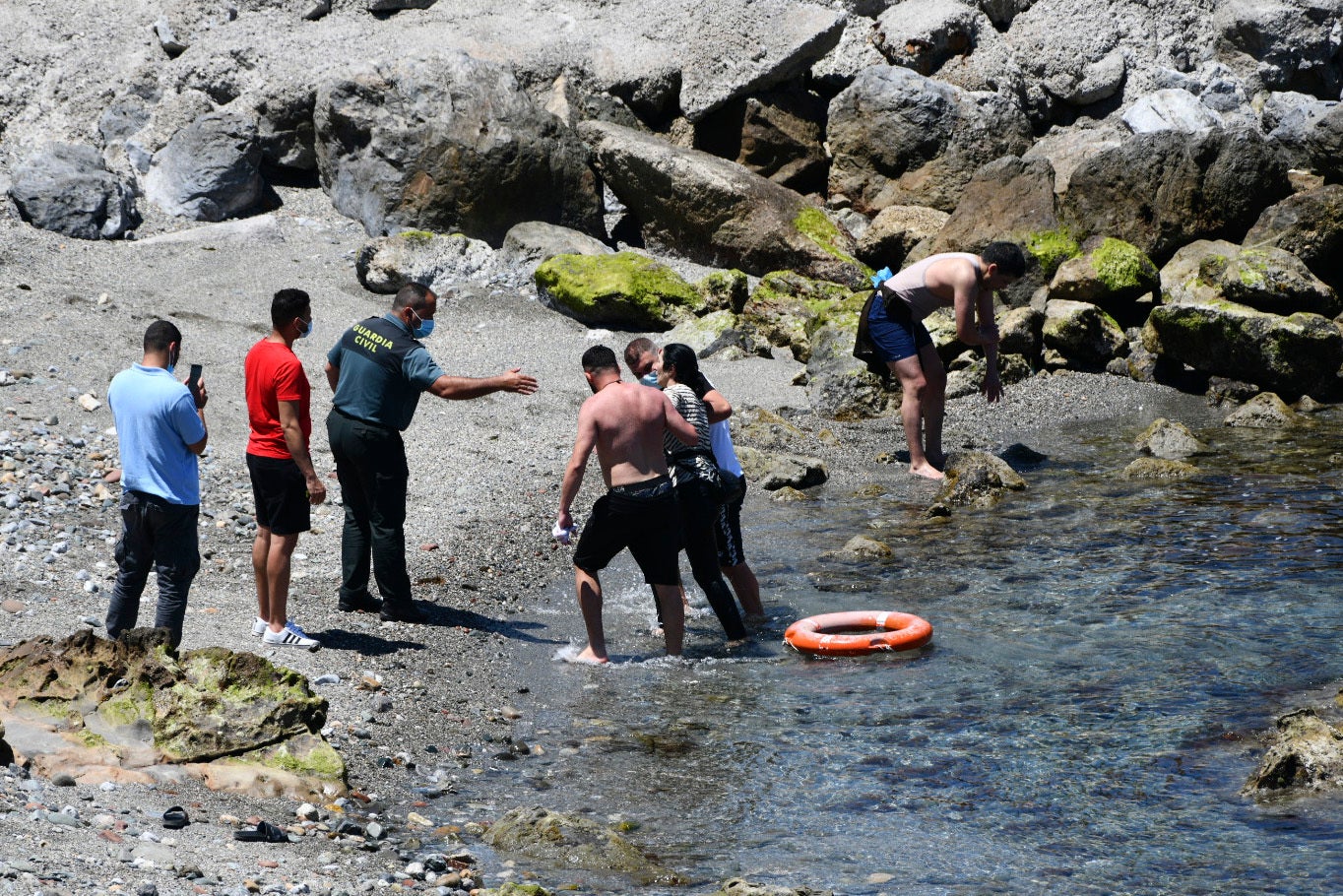Around 1,000 Moroccan migrants cross into Spanish territory
Authorities in Spain say around 1,000 Moroccans, 300 of whom are presumed to be minors, crossed into the Spanish northern African enclave of Ceuta

Around 1,000 Moroccans, a third of whom are presumed to be minors, swam and used inflatable boats Monday to cross into the Spanish northern African enclave of Ceuta authorities said.
Ceuta and nearby Melilla are regarded as a stepping stone into Europe for African migrants. Hundreds of them risk injuries or death every year while trying to jump over fences, hide inside vehicles or by swimming around breakwaters that extend several meters into the Mediterranean Sea.
But the figure of 1,000 people making the crossing in a single day was shocking.
Footage published by El Faro de Ceuta, a local newspaper, showed people climbing the rocky wall of the breakwaters and running across the Tarajal beach, in the southeastern end of the city. Other videos verified by The Associated Press showed long rows of young men lining up at a warehouse managed by the local Red Cross.
The influx of Moroccans came at the end of the Muslim celebrations of Ramadan, when many residents in Europe return home after visiting relatives in the northern African country. It also followed the souring of relations between Morocco and Spain over the latter's decision to receive the leader of a militant group fighting Rabat for medical treatment.
Brahim Ghali, the head of the Polisario Front that disputes Rabat's claim on Western Sahara, is being treated for COVID-19 in a hospital in northern Spain.
The Moroccan foreign ministry said last month that Spain’s decision to give him shelter for “humanitarian reasons” was “inconsistent with the spirit of partnership and good neighborliness.” In May, the ministry also said that Spain's move would have “consequences.”
Mohammed Ben Aisa, head of the Northern Observatory for Human Rights, a nonprofit group that works with migrants in northern Morocco, said that the influx was a mix of the seasonal attempts to reach Europe, the arrival of good weather and the recent tensions between Rabat and Madrid
“The information that we have is that the Moroccan authorities reduced the usually heavy militarization of the coasts, which come after Morocco’s foreign ministry statement about Spain’s hosting of Brahim Ghali," Ben Aisa told The Associated Press.
“The area is heavily monitored by security forces and attempts there, whether to climb the fence or swim, are usually stopped," he added.
Asked by reporters whether Morocco was relaxing controls on departing migrants, Spain's foreign minister simply said she had no information.
“We are not aware,” Arancha González Laya said before concluding brief media remarks.
A spokesman with the Spanish government’s delegation in Ceuta said that the crossings began at 2 a.m. in the border area of Ceuta known as Benzú and were then followed by a few dozen people near the eastern beach of Tarajal.
The daylight didn't stop the crossings, as entire families with children, swam or boarded inflatable boats, said the spokesman, who wasn't authorized to be identified by name in media reports.
A 10-meter-high (32-foot-high) double fence surrounds the eight kilometers (five miles) of Ceuta’s southwestern border with Morocco, with the rest of the tiny territory facing the Strait of Gibraltar and the European mainland across the sea.
He also said Spanish authorities were in touch with their Moroccan counterparts, but that it was too soon to say whether the Moroccans would be deported.
More than 100 young Moroccans also swam into the Spanish territory at the end of April. Authorities said most of them were returned to their country in less than 48 hours after being confirmed as adults.
Spain doesn’t grant Moroccans asylum status. It only allows unaccompanied migrant children to legally remain in the country under the government’s supervision.
___
AP journalist Mosa'ab Elshamy contributed to this report from Rabat, Morocco.
___
Follow AP’s global migration coverage at https://apnews.com/hub/migration
Bookmark popover
Removed from bookmarks